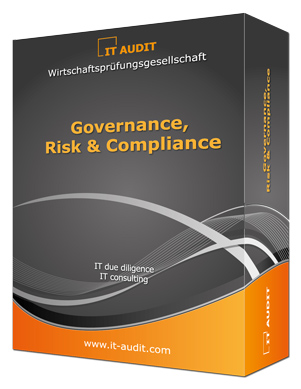
 Due-diligence audits are a crucial analytical component in the sale/purchase of companies. Their aim is to evaluate in detail and systematically the business processes, data and, legal relationships of a company in advance. Due to the ever-greater prevalence of IT in a company’s business processes, a precise consideration of the technological infrastructure and the IT systems deployed has become essential (known as IT due diligence).
Due-diligence audits are a crucial analytical component in the sale/purchase of companies. Their aim is to evaluate in detail and systematically the business processes, data and, legal relationships of a company in advance. Due to the ever-greater prevalence of IT in a company’s business processes, a precise consideration of the technological infrastructure and the IT systems deployed has become essential (known as IT due diligence).
The IT landscape must be recorded and evaluated systematically to be able to establish an overview of the value and strategic benefit of the available infrastructure. Any IT risks and vulnerabilities identified must be acknowledged in the purchase price negotiations and can even result in the transaction falling through.
The aim here is to consider the IT infrastructure of the target company from the perspective of the potential purchaser. An assessment is made of the extent to which the existing IT landscape of the target company can be integrated into that of the prospective purchaser, or the extent to which modifications or enhancements need to be performed. The analyses identify the how scalable and future-proof the IT systems are in order to highlight any alternative or new investments that may be needed.
In essence, an IT due-diligence audit focuses on the following topics/audit areas:
IT capacities (infrastructure, applications, performance, IT personnel/IT organization etc.) IT risks (stability, availability, security, fitness for purpose etc.) IT financial requirements (budget and investment planning, other financial obligations from current contracts etc.)IT projects (project statuses, completed projects, planned projects etc.) IT integration, possible synergies, compatibility (cost/benefit analyses, compatibility of IT strategies etc.)
IT AUDIT has experts with the requisite technical knowledge and methodological expertise to plan and perform IT due-diligence audits.
A professionally planned and executed IT due-diligence audit can drastically reduce the risk of mis-investments. Knowledge about the strengths and weaknesses of the IT landscape can also be used to strengthen one’s negotiating position.